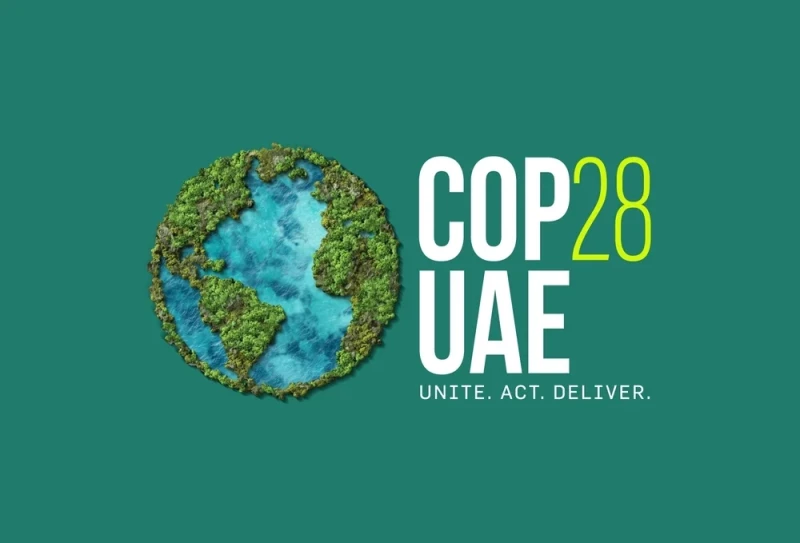22 December 2023 | Energy and sustainability
COP28: The Key Outcomes You Should Know About

The world's largest annual climate conference of the parties (COP28) was hosted in Dubai this year. COP28 was attended by negotiators from nearly 200 countries.
There was a strong emphasis on cutting emissions and increasing financial support to reach the 1.5°C global temperature limit during the conference. It ended with an agreement that signals the "end of the fossil fuel era," underpinned by deep cuts in emissions and increased financing to support a swift, just, and equitable transition.
Although this was celebrated as a historic move by some, there are, however, those who argue that acknowledging fossil fuels' link to climate change shouldn't have required 28 years of negotiation.
The following are the key outcomes of COP28:
International Call to Action: To keep global warming to 1.5°C, negotiators reached an agreement on the world's first global stocktake, which called on countries to improve their climate action plans by 2025. The inventory highlighted the need to cut emissions by 43 percent by 2030 when compared to 2019 levels.
Advancing Beyond Fossil Fuels: Nations are encouraged to triple their renewable energy capacities, double down on energy efficiency enhancements, phase out uncontrolled coal power, eliminate inefficient fossil fuel subsidies, and actively promote an equitable transition away from fossil fuels.
Immediate Emission Reduction Goals: Nations were called upon to establish robust, comprehensive emission reduction targets aligned with the 1.5°C threshold in their forthcoming climate action plans by 2025.
Building Resilience: Operational measures for the loss and damage fund were defined during the conference, with a focus on assisting vulnerable nations grappling with climate change impacts. Additionally, specific targets for the Global Goal on Adaptation (GGA) and its framework were delineated.
Climate Finance Challenges: Despite increased financial commitments, there persists a substantial gap in meeting the financial requirements of developing nations. Emphasis is placed on the necessity of reforming financial structures and instituting innovative sources of finance.
Sustained Mitigation Efforts: The mitigation work programme is slated to continue until 2030, with the objective of conducting at least two global dialogues annually.
Inclusivity and Collaborative Action: Diverse participation from stakeholders such as civil society, businesses, Indigenous Peoples, youth, and international organisations was notable during the event. This underscores the significance of collective engagement in climate action.
Looking Ahead: The negotiations laid the foundation for heightened transparency in implementing the Paris Agreement. COP29 and COP30 will prioritise establishing new climate finance objectives and presenting updated nationally determined contributions in line with the 1.5°C threshold. Overall, the outcomes of COP28 represent a historic stride towards a sustainable future, underscoring the persistent need for collective effort, financial support, and ambitious actions from governments and stakeholders worldwide.
In the end, the success of COP28's results hinges on the concrete steps taken by nations, transcending mere agreement on language. Scepticism looms large, fuelled by decades of escalating emissions and the reluctance of major fossil fuel producers to significantly reduce production, despite endorsing a phaseout. While there is hope for a potential paradigm shift hinted at by the U.A.E. Consensus, past COP sessions' track record and the ongoing upward trajectory of emissions warrant a measured sense of optimism. The actual impact of this agreement is likely to gain clarity in the years ahead, particularly with the next COP slated for Azerbaijan, a notable petrostate.
If you have an interest in Energy and Sustainability and would like to have your say why not attend our National Energy and Sustainability Conference and Exhibition 2024?
Events

The Future of UK Immigration 2026
26 February 2026

The National Operating Theatres Show 2026
10 March 2026

The Annual Facilities Management in the Public Sector Show 2026
17 March 2026

The Future of Academies Show and Exhibition 2026
25 March 2026

The Annual Special Educational Needs and Disabilities (SEND) Conference 2026
25 March 2026
Courses

Leaders in Construction Programme - CMI Level 7
24 February 2026
6 spaces available

AI for Leaders
24 February 2026
7 spaces available

Women In Leadership
6 March 2026
-4 spaces available

Construction Leadership and Management Development Programme - CMI Level 5
10 March 2026
4 spaces available

Effective Leadership Through Emotional Intelligence - CMI Level 7 Award
17 March 2026
5 spaces available